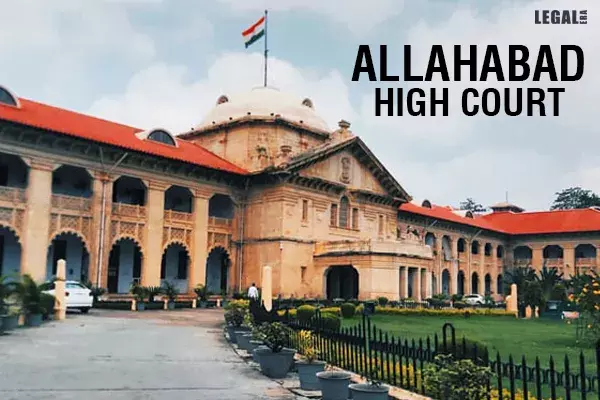Allahabad High Court to Hear Writ Challenging CGST Amendment on Online Money Games
The Allahabad High Court has issued a notice in response to a writ petition challenging the validity of the Central Goods;

Allahabad High Court to Hear Writ Challenging CGST Amendment on Online Money Games
The Allahabad High Court has issued a notice in response to a writ petition challenging the validity of the Central Goods and Service Tax (Amendment) Act, 2023, which was notified on August 18, 2023. The amendment seeks to impose taxes on the entirety of online money games.
Under the previous tax regime, only the platform fee charged for facilitating online money games was liable to taxation. However, the contested amendment seeks to impose taxes on the entirety of the transaction, including the amount won by the users based on their skills and the entry fee paid by the participants.
Operating its own technology platform, the petitioner facilitates skill-based online gaming competitions among its 5,000+ users. As a platform fee, the petitioner retains only 10 per cent of the total amount wagered by the participants, while the remaining 90 per cent is awarded to the winners, over which the petitioner holds no claim.
Previously, only the 18 per cent GST on the platform fee was applicable, reflecting the services provided by the platform. The remaining 90 per cent was classified as an actionable claim arising from a skill-based game and was therefore exempt from GST. The petitioner maintained that only actionable claims stemming from betting, gambling, and lottery were subject to taxation. However, the recent amendment to the Act has brought the entire value of online money games under the purview of GST.
In the writ petition, the petitioner contends that equating online skill-based games with online chance-based games would create an unfair market environment, potentially leading to the demise of smaller startups and leaving only established players in the market.
The recent amendment replaced the terms ‘lottery, betting, and gambling’ with the broader phrase ‘specified actionable claims,’ which now covers online money games. As a result of this change, Entry 6 of Schedule-III now reads as ‘Actionable claims other than specified actionable claims,’ effectively bringing all online money games, excluding lottery, betting, and gambling, under the purview of GST.
The petition asserts that games involving skill, such as chess and cricket, fall under the umbrella of legitimate and desirable activities protected by Article 19(1)(g) of the Indian Constitution. Therefore, activities that primarily involve skill or even a combination of skill and chance, are inherently distinct from betting and gambling. This distinction is the reason why taxes were initially imposed only on betting and gambling under Entry 62 of List-II of the Seventh Schedule of the Indian Constitution before its deletion by the 101st Constitution Amendment Act.
Furthermore, the revised classification is challenged as a violation of Article 14 of the Indian Constitution, as it attempts to treat "unequals as equals." The petition asserts that the Group of Ministers has arbitrarily eliminated the distinction between games of skill and games of chance by imposing a uniform GST rate of 28 per cent on both categories.
The petitioner has also challenged Section 15(5) of the CGST Act, 2017, which contains an overriding clause with respect to other subsections of Section 15 (Value of Taxable Supply) of the CGST Act. Section 15(5) stipulates that despite any provisions in the preceding subsections of Section 15, the Government, on the recommendation of the GST Council, can determine the value of supplies in a manner as prescribed.
The petitioner argued that this delegation of power by the Parliament is unrestricted and lacks appropriate checks and balances, rendering it susceptible to the issue of excessive delegation. Consequently, it has been asserted that Section 15(5) violates Article 14 of the Indian Constitution.

